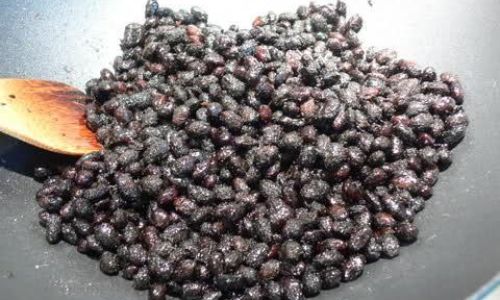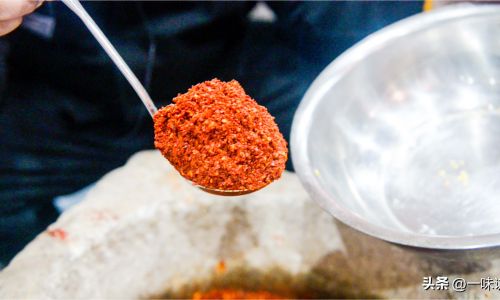Introduction
Fermented black beans, commonly known as douchi in Chinese cuisine, are a staple ingredient in many traditional dishes. These beans are the result of a complex fermentation process that transforms soybeans into a flavorful, umami-rich condiment. Douchi adds a unique depth of flavor to stir-fries, soups, marinades, and even desserts in some regions. While commercial versions are widely available, making your own fermented black beans at home allows you to control the ingredients and the fermentation process, ensuring a fresh, authentic taste.
In this guide, we will walk you through the entire process of making douchi from scratch. From selecting the right soybeans to managing the fermentation process, we’ll cover every step in detail. By the end, you’ll have a batch of homemade fermented black beans ready to enhance your culinary creations.
Chapter 1: Understanding Fermented Black Beans

1 What Are Fermented Black Beans?
Fermented black beans are soybeans that have undergone a controlled fermentation process. This process involves exposing the beans to specific microorganisms, such as bacteria and fungi, which break down the bean’s starches and proteins into simpler compounds. The result is a product with a rich, savory flavor and a slightly tangy aroma.
2 Types of Fermented Black Beans
There are several types of fermented black beans, each with its own unique characteristics:
- Chinese Douchi: These are the most common type and are widely used in Chinese cuisine. They are typically made from black soybeans and have a strong, earthy flavor.
- Japanese Natto: Natto is a sticky, stringy type of fermented black bean that has a very distinct smell and taste. It is often eaten with rice and soy sauce.
- Indonesian Tempeh: While tempeh is not traditionally considered a type of fermented black bean, it is a fermented soybean product that is popular in Indonesian cuisine. It has a firmer texture and a nutty flavor.
3 Health Benefits of Fermented Black Beans
Fermented black beans offer several health benefits due to the fermentation process:
- Probiotics: The fermentation process introduces beneficial bacteria into the beans, which can help improve gut health.
- Enhanced Nutrient Absorption: Fermentation breaks down complex nutrients, making them easier to digest and absorb.
- Antioxidants: Fermented black beans contain antioxidants that can help protect cells from damage.
- Rich in Protein and Fiber: These beans are a good source of plant-based protein and fiber, which are essential for overall health.
Chapter 2: Selecting and Preparing the Soybeans
1 Choosing the Right Soybeans
To make high-quality fermented black beans, you need to start with good-quality soybeans. Here are some tips for selecting the right soybeans:
- Freshness: Choose soybeans that are fresh and have not been stored for too long. Old soybeans may not ferment properly.
- Variety: Black soybeans are traditionally used for making douchi, but you can also use other varieties like yellow or green soybeans if you prefer.
- Appearance: Look for beans that are whole, uncracked, and free from mold or discoloration.
2 Preparing the Soybeans
Once you have selected your soybeans, you need to prepare them for fermentation:
- Sorting and Cleaning: Sort through the beans to remove any stones, dirt, or damaged beans. Rinse them thoroughly under cold running water.
- Soaking: Soak the beans in enough water to cover them by at least 2 inches. Let them soak for 8-12 hours, or until they are soft and have doubled in size.
- Draining: Drain the soaked beans in a colander and rinse them again under cold water. Let them drain well.
Chapter 3: The Fermentation Process
1 Preparing the Fermentation Environment
Fermentation requires a specific environment to succeed. Here are some tips for setting up your fermentation space:
- Cleanliness: Ensure that all surfaces, utensils, and containers are clean and free from contaminants.
- Temperature: The ideal temperature for fermentation is between 75-85°F (24-29°C). Too low or too high temperatures can slow down or stop the fermentation process.
- Humidity: Maintain a moderate humidity level to prevent the beans from drying out.
2 Adding Salt and Flavorings
Salt is crucial for inhibiting harmful bacteria and preserving the beans during fermentation. Here’s how to add salt and other flavorings:
- Salt: Use non-iodized salt, as iodized salt can inhibit fermentation. The general ratio is about 3% salt by weight of the beans.
- Flavorings: You can add various flavorings to your beans, such as ginger, garlic, chili peppers, or herbs. These will add complexity to the final product.
3 Starting the Fermentation

Now it’s time to start the fermentation process:
- Packing the Beans: Place the drained beans in a clean, non-reactive container (such as a glass jar or ceramic crock). Add the salt and any flavorings you’ve chosen.
- Pressing Down: Use a clean, heavy object (like a smaller jar filled with water) to press down on the beans and submerge them in their own liquid. This prevents mold from forming on the surface.
- Covering: Cover the container with a clean cloth or loose-fitting lid to allow gases to escape while preventing contaminants from entering.
4 Monitoring the Fermentation
The fermentation process can take anywhere from a few days to a few weeks, depending on the temperature and other factors. Here’s how to monitor your beans:
- Daily Check-Ins: Check the beans daily to ensure they are submerged and to look for signs of mold or off odors.
- Taste Testing: Start tasting the beans after a few days to monitor their progress. They should develop a rich, savory flavor and a slightly tangy aroma.
- Adjusting Conditions: If the beans are fermenting too quickly (e.g., developing too much mold or a strong ammonia smell), reduce the temperature. If they are fermenting too slowly, increase the temperature.
Chapter 4: Finishing and Storing Your Fermented Black Beans
1 Stopping the Fermentation
Once your beans have reached the desired flavor and texture, it’s time to stop the fermentation process:
- Refrigeration: Transfer the beans to a clean container and store them in the refrigerator. Cold temperatures will slow down the fermentation process.
- Boiling: Alternatively, you can boil the beans for a few minutes to stop the fermentation. Let them cool before storing.
2 Storing Your Fermented Black Beans
Proper storage is key to preserving the quality and flavor of your fermented black beans:
- Airtight Containers: Store the beans in airtight containers to prevent oxygen exposure, which can lead to spoilage.
- Refrigeration: Keep the beans refrigerated to extend their shelf life. They can last for several months when stored properly.
- Freezing: For long-term storage, you can freeze the beans in airtight containers or freezer bags. They will keep for up to a year.
Chapter 5: Using Your Fermented Black Beans
1 Culinary Applications
Fermented black beans are incredibly versatile and can be used in a wide range of dishes:
- Stir-Fries: Add a handful of beans to your favorite stir-fry for an extra layer of flavor.
- Soups and Stews: Incorporate them into soups and stews for a rich, umami-laden broth.
- Marinades: Use them as a base for marinades to add depth to grilled or roasted meats.
- Sauces: Blend them into sauces for a unique, savory twist.
- Rice Dishes: Mix them into rice dishes like fried rice or paella for added complexity.
2 Experimenting with Flavors
Don’t be afraid to experiment with different flavors and ingredients when making your fermented black beans:
- Herbs and Spices: Add your favorite herbs and spices to the beans during fermentation for a customized flavor profile.
- Infusions: Try infusing the beans with flavors like tea, wine, or vinegar for unique results.
- Combinations: Mix the beans with other fermented products like miso, kimchi, or sauerkraut for interesting flavor combinations.
Conclusion
Making your own fermented black beans is a rewarding culinary endeavor that allows you to create a unique, flavorful condiment. By following the steps outlined in this guide, you can produce a batch of high-quality douchi that will enhance your dishes and impress your guests. Remember to experiment with different flavors and ingredients to find the perfect combination for your taste buds. Happy fermenting!






0 comments